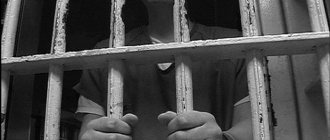To consider in as much detail as possible the types of examinations in criminal proceedings is the task of this article.
Criminal procedural law identifies several classifications that you need to have an idea about. In addition, in addition to the categories established by law, there is a division into areas of knowledge required to obtain evidence necessary for participants in legal proceedings. The legislator has defined a certain mechanism for orderliness, so that the appointment of an examination in criminal proceedings occurs in a chaotic manner.
The law defines cases when the conduct of a forensic examination in criminal proceedings is mandatory.
Multi-channel free hotline Legal advice on criminal law. Every day from 9.00 to 21.00
Moscow and region: +7 (495) 662-44-36
St. Petersburg: +7 (812) 449-43-40
Content
- 1 Levels of examinations 1.1 1st class - forensic examinations
- 1.2 Class II - medical and psychophysiological examinations
- 1.3 III class - forensic engineering and transport examinations
- 1.4 IV class - forensic economic examinations
- 1.5 V class - forensic engineering and technical examinations
- 1.6 VI class - forensic engineering and technological examinations
- 1.7 V. class - forensic biological examinations
- 1.8 VIII class - agricultural examinations
- 1.9 Class IX - forensic environmental examinations
- 1.10 X class - art history
- 2.1 Primary examination
Classification of forensic examinations according to the Code of Criminal Procedure of the Russian Federation
The law defines not only different grounds, but also the procedure for conducting forensic examinations. The Code of Criminal Procedure of the Russian Federation has a clear classification of forensic examinations, taking into account which various regulations for the procedure for their production are proposed. On this basis, primary, additional and repeated examinations are distinguished.
Primary examination
The primary examination is the first examination with the issuance of an opinion on the examination of the objects presented to the expert, as well as certain circumstances of the case. In most cases, the initial examination is final.
Additional expertise
An additional examination is appointed if the initial conclusion is insufficiently clear or incomplete (Article 207 of the Code of Criminal Procedure of the Russian Federation). This type of examination can be performed either by the expert who conducted the initial examination or by another expert.
By “unclear” we mean such an expert opinion, according to which it is impossible to judge whether the expert solved the questions posed in a categorical or probable form, whether a positive or negative result was obtained during the study, what fact was established during the study, etc.
“Incompleteness” of the primary (main) examination may consist in the examination of not all objects provided to the expert, or in the answers to only part of the questions posed, etc.
However, the insufficient completeness and clarity of the conclusion may be due not only to the fact that the expert did not apply all research methods to resolve the issues posed, but also to the fact that he was not provided with the necessary case materials, which (for objective reasons) could appear after the completion of the primary examination .
An additional examination is not appointed to resolve newly arising issues regarding the case materials that have already been used in making the main conclusion. In this case, the absence in the resolution of issues of interest to the investigation is not grounds for ordering an additional examination. These issues can be resolved by assigning another independent examination to the same or another expert institution, or during the interrogation of the expert.
To clarify and supplement certain provisions of the expert report, the law allows for the interrogation of an expert (Article 205 of the Code of Criminal Procedure of the Russian Federation). The expert's interrogation can also be carried out to clarify complex formulations and special terms, the essence and capabilities of the methods used, the discrepancies between the scope of the questions posed and the conclusions drawn or the factual data reflected in the research part of the conclusion and the conclusions. A protocol on the interrogation of the expert is drawn up in compliance with the requirements of the Code of Criminal Procedure of the Russian Federation. At the end of the interrogation, the expert gets acquainted with the protocol and has the right to demand its completion and the introduction of necessary, in his opinion, amendments. He also has the right to write his testimony in his own hand. The protocol is signed by the expert and the investigator.
Not in all cases, interrogation of an expert replaces the production of additional examination, especially if additional research is necessary. For example, one of the most common issues that forensic experts deal with is determining the severity of harm to health. When conducting an examination immediately after the occurrence of injuries, it is not possible to establish the severity of harm to health with an uncertain outcome. Therefore, in the future, an additional examination will be carried out to finally resolve the issue. At the same time, medical documents are additionally examined, and the victim is re-examined by an expert. The conducted research is reflected in the descriptive part of the conclusion and is the basis for formulating final conclusions.
Re-examination
A repeated examination is an examination carried out on the same objects and the same issues on which the previous (most often primary) examination was carried out, which was found unsatisfactory or raised doubts. It is appointed if the expert’s conclusion is unfounded or there is doubt about its correctness (Article 207 of the Code of Criminal Procedure of the Russian Federation). A repeat examination may be ordered in cases where, during the appointment of the previous (primary) examination, significant violations of procedural norms were committed, if the expert’s conclusions are in conflict with the actual circumstances of the case, if during the trial, new data is revealed that may affect the expert conclusions.
The grounds for ordering a re-examination are usually divided into factual and procedural.
Among the factual grounds
to order a re-examination, the unfoundedness (absence of one or more sections of the examination, insufficiency of the detected signs for making a decision, etc.) and incorrectness (that is, inconsistency with reality) of the conclusion of the previous (primary) examination are distinguished. A repeat examination may also be ordered due to the revealed incompetence of an expert in a specific issue, the fallacy of the scientific and methodological position on which he relied when formulating conclusions, etc.
Procedural grounds
to the appointment of a repeated examination are non-compliance with the norms of criminal procedure law regulating the procedure for appointing and conducting the examination (for example, the performance of the examination by a specialist interested in the outcome of the case, etc.).
One of the reasons for ordering a re-examination may be a violation of the rights of the accused granted to him by Art. 198 Code of Criminal Procedure of the Russian Federation.
Bodies appointing examinations must draw a clear line between additional and repeated examinations, and also take into account the objective possibility of conducting a repeated examination, for example, in the event of a loss or significant change in the objects under study.
The reason for ordering a re-examination is also the revealed professional incompetence of a previously appointed expert and the establishment of the fact that the expert is interested in the outcome of the case.
The re-examination is entrusted to another expert or other experts. It cannot be entrusted to the expert who conducted the primary examination. It is advisable to entrust it to a commission of qualified experts (this especially applies to forensic medical and forensic psychiatric examinations).
A repeated examination is carried out to resolve the same issues and on the basis of the same initial data on which the previous examination was carried out. At the same time, for a re-examination, materials can be presented in a more complete volume, the circumstances of the case and previously investigated facts can be specified.
When raising new questions and providing case materials that the expert who gave the initial opinion did not have, it is more correct to appoint a new examination.
The law does not allow a re-examination by the expert who carried out the initial examination. At the same time, the law does not prohibit the expert who conducted the initial examination from taking part in the work of the expert commission performing a second examination on the same case. According to M.I. Avdeev (1964), the participation of this expert during a re-examination is sometimes necessary, since it may be useful to discuss the issues posed together with this expert (except in cases where a re-examination is appointed due to a reliably established personal interest of the expert in the outcome of the case). In addition, he can assist in the assessment of physical evidence that was partially lost or altered during the primary research. Therefore, in our opinion, the participation of a forensic expert who previously gave an opinion in a repeated commission forensic medical examination should not be a priori excluded. With the help of this expert, the commission will be able to more competently understand the mistakes he has made, and the expert’s high moral level will help him critically evaluate the conclusion he previously gave. It is impossible to exclude a situation where the expert who gave the initial opinion will be able to convince the commission of the validity of his conclusions. Such cases often occur in practice. The opposite point of view is noted in the works of criminologists. Thus, according to L.L. Golovanov (1966), the participation of the expert who gave the initial opinion in the re-examination is contrary to the law. V.M. Galkin (1972) considers its production by another expert or other experts to be a mandatory feature of a repeated examination. However, this is the opinion of forensic experts, and it relates to the conduct of forensic examinations. When ordering a re-examination with questions that were raised for resolution of the primary examination, the question may be raised about the correctness of the research methods used in the initial examination and their effectiveness.
At the same time, the question of the correctness of the initial conclusion should not be raised. The expert (experts) conducting the re-examination can speak only about the correctness (scientific validity and applicability in this case) of a particular research method, about the possibility (realized or unrealized) of obtaining, using the methods and means used during the initial examination, the data that was recorded in the expert opinion. Otherwise, if he undertakes to evaluate the conclusion as a whole, there will be a violation of the limits of expert competence, since according to the law, the assessment of the expert conclusion is given by the investigator (court). In the event that doubts were raised by the expert’s answers to only some questions, it is hardly reasonable to pose to the executor of the re-examination the entire set of questions that were present in the decision to order the previous examination.
The presence of a discrepancy between the primary and re-examination does not automatically make the re-examination correct (and the previous one, therefore, “incorrect”) and is not a basis for sending the case for further investigation or ordering another examination. The investigator and the court evaluate both conclusions on their merits, after which they make an objective decision.
Commission examination
The law allows for the possibility of examination by several experts who are specialists in one field of knowledge. This type of examination is called a commission. There is no reason to consider a commission examination as a separate type of examination, because a commission of experts can carry out primary, additional, and repeated examinations.
Practice shows that commission examinations are usually carried out to resolve the following issues:
— in cases of criminal prosecution of medical workers;
— to determine the degree of disability;
— particularly complex examinations of materials from investigative and judicial cases;
- in cases of feigning illness; in cases of evasion of military service in one way or another;
- during repeated examinations.
A commission of experts may be created by the person who appointed the examination, or by the head of the expert institution to which it was appointed, if the composition of the commission is not determined by the person who appointed the examination. Medical specialists from relevant medical institutions are invited to participate in commission examinations on the initiative of judicial investigative bodies or at the suggestion of forensic experts. These persons must be determined by a resolution of the body that appointed the examination.
Specialists included in the expert commission are warned of responsibility and, along with full-time forensic experts, bear personal responsibility for this conclusion and are endowed with the same duties and rights.
It is advisable to include at least three experts in the commission. One of the commission members is its chairman. Often the commission is headed by the head of an expert institution.
Comprehensive examination
A comprehensive examination is carried out on the same grounds and according to the same procedural rules as other types of examinations provided for by the Code of Criminal Procedure of the Russian Federation, but it has some features. In cases where the production of a comprehensive examination is entrusted to several institutions, the resolution (definition) on its appointment indicates which of them is leading. If this is not indicated, the heads of institutions themselves decide on this issue. The resolution on the appointment of an examination is sent to each of the expert institutions entrusted with carrying out the examination. If answering some of the questions posed does not require a comprehensive examination, the progress and results of the research on them can be formalized in separate conclusions. The head of the leading institution, organizing the production of a comprehensive examination, appoints a leading expert who ensures the organization and coordination of the activities of the commission of experts. In the “Instructions...” the tasks of the leading expert are clearly defined.
The period for conducting a comprehensive examination of materials with a large number of objects or requiring complex research is up to 1 month. The general conclusion(s) of the conclusion are signed by experts who took part in the joint assessment of the research results and came to a consensus. An important point of the Instructions is the following: “The requirement of the law that an expert gives an opinion on his own behalf on the basis of research conducted by him in accordance with his special knowledge, and bears personal responsibility for the conclusion given by him, fully applies to persons participating in the proceedings comprehensive examination and signatories of the general conclusion(s).” If the experts do not come to a common conclusion, they formulate independent conclusions in a general conclusion. In this case, each expert is obliged to justify the reasons for disagreement with the opinions of other experts.
In fact, when conducting a comprehensive examination, experts from related or different specialties, using each other’s knowledge, resolve issues related to border areas of knowledge. The need for complex examinations is dictated by investigative and judicial practice itself. At the present stage of development of expertise, characterized by the process of differentiation and integration of expert knowledge, one expert is not able to solve many boundary issues. The method of obtaining several expert opinions related to the examination of objects in one criminal case is irrational and makes it difficult for the investigator and the court to holistically perceive the results of examinations carried out by various experts. Investigative and expert practice knows cases when a particular issue was resolved only by the combined efforts of specialists from various fields of knowledge.
The experience of expert work shows that among complex examinations with the participation of forensic doctors, the most common are forensic autotechnical and forensic medical examinations, forensic ballistic and forensic medical examinations, traceological and forensic medical examinations. For example, complex forensic autotechnical and forensic medical examinations successfully resolved questions about the relative position of the victim and the vehicle, and who was driving at the time of the incident.
Opponents of complex examinations argue that an expert who does not have knowledge of a related specialty does not have the legal right to sign a general conclusion. It seems that excessive reinsurance when determining the procedure for drawing up and signing a joint conclusion of a comprehensive examination is not necessary. A comprehensive examination should, as a rule, be carried out by experienced experts and they will be able to skillfully assess its purpose and objectives, organically connect the research being carried out, and obtain the most optimal results. Here the principle of synergy should manifest itself, when the integrative combination of efforts of the participants in the examination significantly exceeds the capabilities of each of them. It does not contradict common sense that each of the participants in a comprehensive examination is able to understand the progress and results of complex research and all experts will be able to come to common conclusions. If experts cannot understand the meaning of the research carried out by each individual, then each person signs only that part of the research that was carried out directly by him. Typically, the need to conduct a comprehensive examination is discussed by the legal body with expert institutions in advance, its capabilities and expected results are clarified, and then a decision is made to conduct it. Sometimes the initiative to conduct a comprehensive examination is taken by experts who have been assigned a primary or re-examination.
Evasion of parties from participation in examination in civil proceedings.
If a party evades participation in the examination, fails to provide the necessary materials and documents for experts, and if without such participation the examination becomes impossible, the court has the right, depending on which party evades the examination, as well as what it has for it value, has the right to recognize the fact for the clarification of which the examination was appointed as established or refuted.
Thus, the legislator has established a position in which attempts to deviate from participation in the examination will always turn out not to be in favor of such a person.









